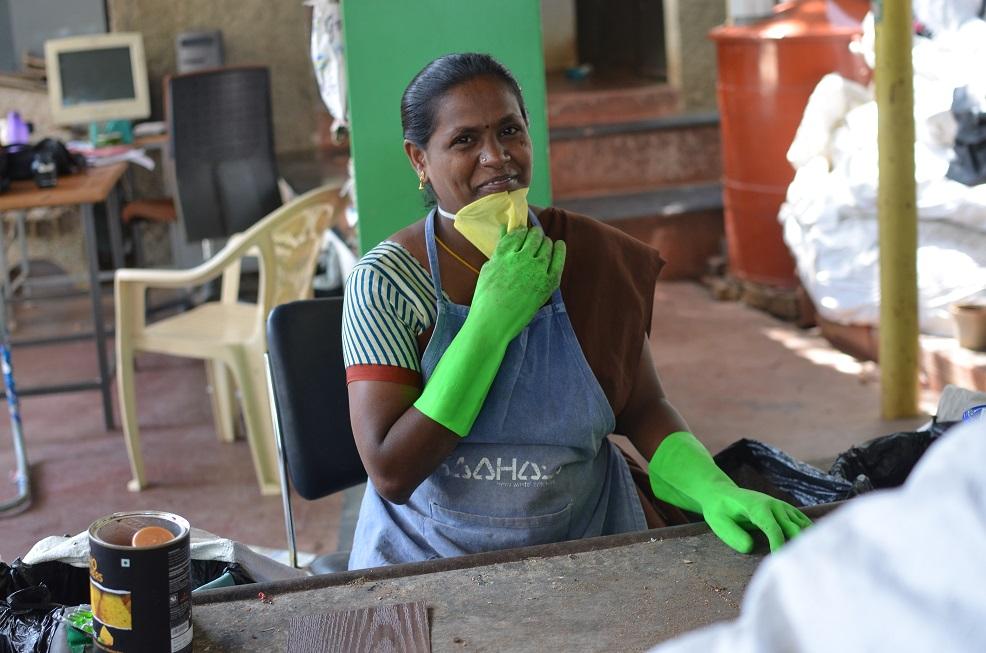There is an increasing convergence among global stakeholders for the need to harmonize sustainability reporting and ramp up commitments to impact metrics.
Investors and businesses are also facing increasing pressure from consumers and stakeholders to be transparent about their social and environmental impact.
While Environmental, Social and Governance (ESG) considerations may be separately evaluated, it is also constructive to view them as interconnected.
Sustainable inclusive businesses are often considered risky by commercial investors. This is where innovative financing and early stage investors can come in to fill in the gap and provide opportunities for later rounds of diversified investment.
Inclusive businesses should be clear about their vision and transparent about impact to find the right investor fit.
Monitoring impact is critical both for socially impactful companies to attract investment and to mitigate “impact-washing” or “ESG-washing.”

How can companies attract investment?
The capacity for business to serve as a force for good depends on mobilising capital towards environmental and social impact and measuring that impact. Over the last five years there has been a notable increase in both impact investing and ESG (Environmental, Social and Governance) investing. In 2021 an estimated $120 billion was poured into ESG investment, more than double the US $51 billion of 2020. Impact investing funds have also grown exponentially, with 72 percent of investors reporting that they planned to maintain or increase the volume of capital dedicated to impact investing despite Covid-19, according to a survey from the Global Impact Investing Network.
At the same time, companies are facing questions from consumers about their supply chains and their social and environmental impact. International coalitions are also pushing for a harmonized approach: In December 2021, the G7 Impact Taskforce published a report laying out recommendations to mobilise private capital. Among others, it urged public and private sector leaders to support mandatory impact reporting for companies and investors.
In this issue of CLUED-iN, we examine the intersection between investment and social impact, with a focus on funding that supports inclusive businesses targeting underserved populations around the world.

Consumers want to know about supply chains.
There is an increasing convergence among global stakeholders for the need to harmonize sustainability reporting and ramp up commitments to impact metrics. In December 2021, Novartis held the 4th Co-creating Impact Summit, which demonstrated the centrality of impact valuation. “The notion of considering all stakeholders and valuing the impact of business activities on them is generally accepted as the north-star of sustainability metrics,” said Sonja Haut, Head of Measurement and Materiality at Novartis. Shortly after the summit, the G7 Impact Taskforce also released their guidelines.
Investors and businesses are also facing increasing pressure from consumers and stakeholders to be transparent about their social and environmental impact. This has also amplified investor interest in supporting businesses with demonstrated impact, including smaller inclusive businesses.
“Investors are savvy – they follow consumer trends, and consumers all over the world are more inclined to support inclusive sustainable businesses. It is therefore really in the best interest of the investor to support businesses that consumers support,” argues Ebun Feludu, founder of JAM The Coconut Food Company, an inclusive business based in Nigeria.

Social and environmental impact can align.
“Investors increasingly care also about social outcomes, not because it’s their primary mission, but because increasingly, this is the expectation of society from them. Some of the conversations in this regard are more mature on the environmental side, but I think the pressure on the social side is increasing too,” says Professor Jasjit Singh.
While Environmental, Social and Governance (ESG) considerations may be separately evaluated, David Chen, founder of AgriG8, emphasizes that it is important to see how they are linked together. “They are interconnected and it is truly about balance. For example, an overemphasis on the environment may result in a strategy towards organic agriculture without fully understanding the domino effect on the social and governance aspects.”

AgriG8 incentivises farmers to use sustainable practices.
Inclusive businesses provide opportunities and livelihoods for underserved populations and have an inherently strong focus on social impact. However, many of them are initially considered risky by commercial investors. This is where innovative financing and early stage investors can come in to fill in the gap and provide openings for later rounds of diversified investment. For example, in India, Upaya Social Ventures specifically invests in companies providing meaningful jobs to the poorest and most vulnerable communities, thereby reaching the “missing middle.”
In another example outlined by Jayanth Bhuvaraghan, former Chief Mission Officer of Essilor, and Professor Jasjit Singh of INSEAD, outcome investors can help inclusive businesses define their impact in order to attract investment and scale. “This is an evolution. I believe strongly, in the next five to six years there will be a huge development in the innovative financing space driving inclusive businesses because we can’t afford to ignore the majority of the world which have growing needs for products and services,” says Mr. Bhuvaraghan.
The ideal investor should share the same values as the company it supports. Ms. Feludu explained that it took some time to find an investor who was the right fit for her women-centered inclusive business. “There is a sweet spot in the universe for every entrepreneur. That sweet spot is your unique intersection of investors that align with your vision, and your customers. Keep doing the work and telling your story until you find that sweet spot,” she advises.

Upaya Social Ventures invests in companies that provide livelihoods.
Monitoring impact is critical both for socially impactful companies to attract investment and to mitigate “impact-washing” or “ESG-washing.” Clearly defined impact measurement metrics are key for companies and investors. Arun Venkatesan, CEO of impact incubator Villgro USA, explains that transparency is critical for inclusive businesses seeking out investment: “Being transparent and knowledgeable about where in the impact chain you fit and how well you are delivering that impact is important…I would say, a good twenty per cent of the effort of a social enterprise will go into impact measurement, if not more.”
Metrics are still evolving, and can be manipulated, leading to the danger of “ESG-washing” or “impact-washing.” “For impact to drive real change, rather than new rounds of box-ticking, we need a parallel revolution in impact valuation,” Ms. Haut argues.
Global companies now have the opportunity to create measurable outcomes by honing their impact metrics, while investors can provide resources to sustainable inclusive businesses to help them grow and scale. This is an opportune moment to mobilise financing to where it is most needed.

Impact measurement is vital.
- Mobilising private capital at scale for people and the planet (Impact Taskforce)
- The Co-Creating Impact Summit (hosted by Novartis)
- Free online courses on impact investing and funding (AVPN Academy)
- The difference between ESG and impact investing and why it matters (IFC)
Pictures
- African farmer holding cocoa pod: ©GIZ/Gaël Gellé
- Man cleaning solar panel: ©GIZ/Kamikazz
- Rice farmer, Myanmar: ©GIZ/Susann Tischendorf
- Female worker: provided by Upaya Social Ventures
- All other pictures: Pixabay, Unsplash



